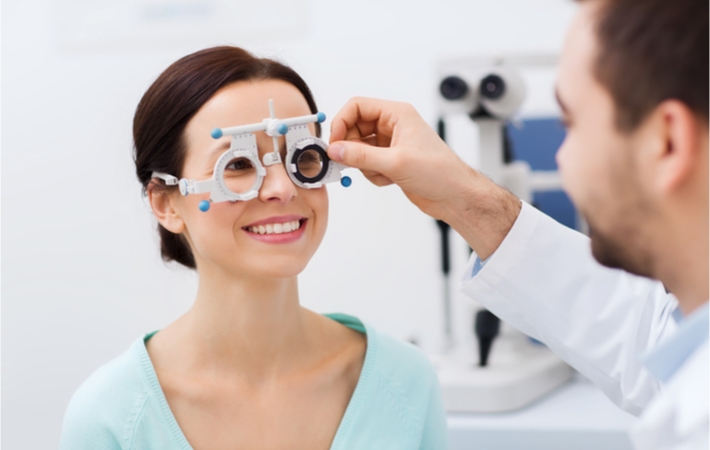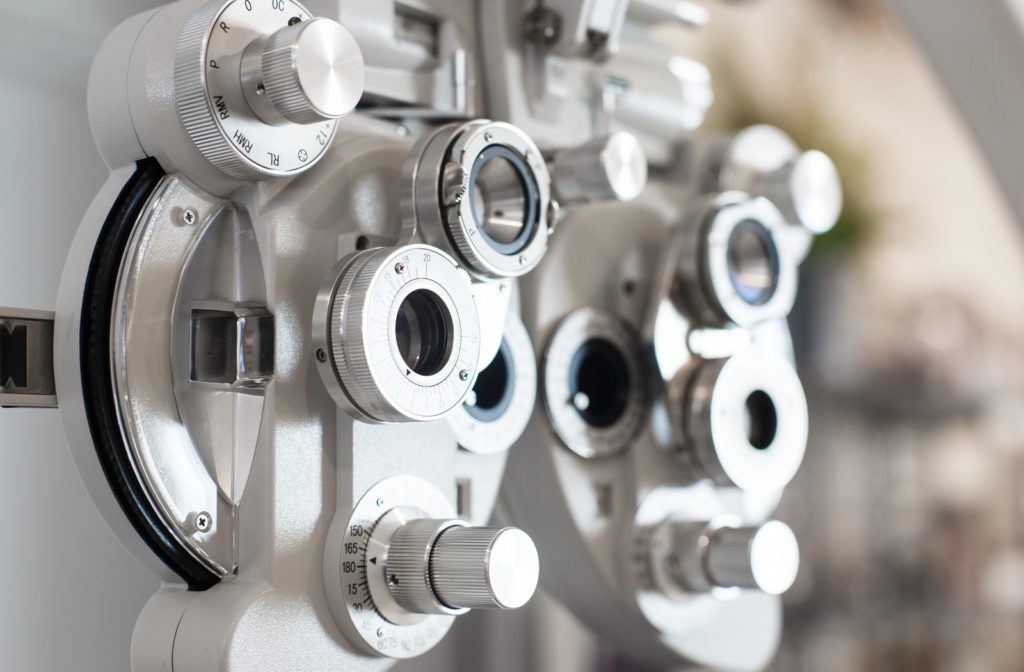How Long Is an Eye Exam?
Heading to your optometrist for an eye exam can always be a juggling act with your schedule. Especially if you don’t know exactly how long you may be there.
You may wonder about the exact amount of time your eye exam may take, which requires a little more explanation.
Let’s explore what an eye exam entails, why you may need a comprehensive eye exam, and the different factors of eye exams that may affect appointment length. Our Fargo optometrists have performed thousands of eye exams and have seen just about everything when it comes to doing them.
What Goes Into an Eye Exam?
An eye exam involves a series of tests to evaluate your vision and check for any anomalies or eye diseases. Vision care is essential—your optometrist will check your visual acuity and assess your ocular health.
Your eye exam will also explore any refractive errors you may be dealing with. When the light entering your eye isn’t focused correctly on the retina, it results in a refractive error.
Some of these refractive errors include:
- Nearsightedness—otherwise known as myopia, makes far-away objects look blurry
- Farsightedness—also known as hyperopia, makes nearby objects look blurry
- Astigmatism—can make far-away and nearby objects look blurry and distorted
- Presbyopia—makes it harder for middle-aged and older adults to see things up close
Many eye diseases begin with little to no symptoms. A regular eye exam is a great way to preserve your sight and catch any issues early.
Whether you’re going in for an adult eye exam or an eye exam for your children, keeping a consistent schedule is essential in maintaining eye health.
Eye Exam Frequency
The frequency of eye exams can vary—it’s recommended that adults have a comprehensive eye exam yearly. Your optometrist may recommend more frequent appointments if additional risk factors are found.
As you age, your eye exam frequency may increase due to various factors, and you should have your eyes checked more often if you:
- Have frequent changes in your glasses or contact lens prescriptions
- Have a family history of eye disease or loss of vision
- Have a chronic disease that puts you at greater risk of eye disease
- Take medications that have eye side effects
It would be best if you went for an eye exam as needed and at the instruction of your optometrist.
Children’s eye exams are a little bit different—consistent visits to your optometrist are essential to the growth and development of children. Children’s visual health begins at a young age, and it’s important to make sure these vision milestones progress as they should.

How Long Does an Eye Exam Take?
The length of an eye exam can depend on many factors.
For a basic eye exam, your optometrist will explore your eye history, including:
- Any vision problems
- Corrective methods you use such as glasses or contact lenses
- Your family history
- Any current medications you use
A routine exam usually takes about 30 minutes, from health assessment to prescription evaluation.
However, there are eye exams where that time can vary because of specialty testing.
Specialty eye exams can include:
- Dry eye therapy
- Vision therapy
- Laser eye surgery consultation
- Digital eye strain
- Eye disease diagnosis and management
- Emergency eye care
Your vision will change throughout your life. With that may come specific vision issues that you’ll need to monitor and maintain frequent check-ups with your optometrist.
The time for these exams can vary based on your needs and how severe the eye condition is. Proper diagnosis and treatment are essential for healthy vision.
Maintaining Consistency
The length of your eye exam will more often than not depend on the specific treatment you need. It’s essential to maintain consistency with your eye exam appointments and catch any issues early for you and your children.
Book an appointment with our optometrists today for more information.



